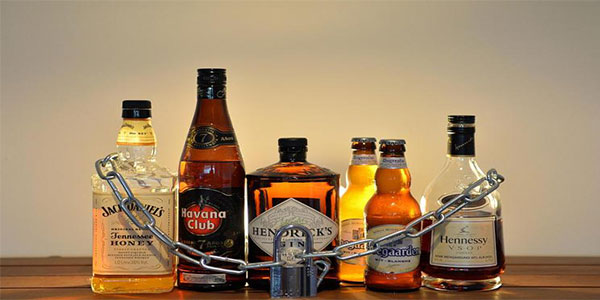Standing up to its poll promises, the Mizo National Front (MNF), led by CM Zoramthanga has completely banned liquor from the state of Mizoram. In the run-up to the election, MNF in its manifesto had promised to completely ban the alcohol once voted to power. Whereas the Congress party was against the total prohibition, the Bharatiya Janata Party took a middle path as it proposed to ban the liquor coming from outside the state and encouraged only the locally produced ones.
Zoramthanga after being sworn in for the third time as Chief Minister of Mizoram held the first cabinet meeting today in the state capital Aizwal. The state government has decided that it will ban the sale of liquor by the government sale unit with immediate effect. For the private sellers government has imposed a carpet ban from December 21 till January 14.
Zoramthanga’s MNF won the state assembly elections with a thumping majority, beating the anti-incumbency it won 26 seats, with Congress only managing 5 seats in the 40-member assemblies. Lal Thanhawla, former chief minister of the state contested elections from two seats, Champhai South and Serchhip and lost on both of them.
The state had been a dry state for 17 years after the Mizoram Liquor Total Prohibition Act, 1995 was introduced by former Chief Minister Lal Thanhawla who was in his third term of office at the time. In 2014, Thanhawla repealed it and passed the Mizoram Liquor Prohibition and Control Act. The CM had admitted that the total ban had failed and a partial ban was needed. But this drew flak from Church bodies and the powerful Presbyterian Church. The dominant sect in the Christian majority state-organized mass prayers across the state in the form of protests. The Church, perceived as a guardian authority in Mizoram, had repeatedly demanded for a complete ban on liquor.
Zoramthanga had then claimed that some 500 policemen and another 6500-7000 people had died at a young age due to excessive drinking, since 2015. The records of the Narcotics and Excise Department point that while 57 people have died from 1997 to 2014, 9 died in 2015, 22 in 2016 and 59 in 2017. It clearly shows an increasing trend in the deaths connected to liquor consumption after the MLPC Act. Zoramthanga echoed it as a huge cause for concern for parents and wives. While another leader of his party explained why number of male voters are less than female voters (by 19,189) in this 2018 election, “because men are dying” calling it a “peculiar situation”. In 2007 the MNF had amended the MLTP to allow wine to be made locally from guavas and grapes with restrictions on volume/volume of alcohol content and the volume possessed. During Thanhawala’s fifth term, he revoked the prohibition on July 10, 2014.
It can be observed that due to the will of the church, the state government has taken such a decision. In his statement, Zoramthanga said, “We have decided to immediately stop the sale of alcohol by government agencies. As for the private players, it is not possible immediately and we need legislation that will take some time. So as an interim measure we have decided that December 21 to January 14 will be dry days.”
So, Christmas this year is set to be completely a dry affair in the state. According to reports, the alcohol ban would yearly cause a loss of about Rs. 70 crores. In between 2015 and 2018, the alcohol sales brought in about Rs. 200 crores as revenue.
